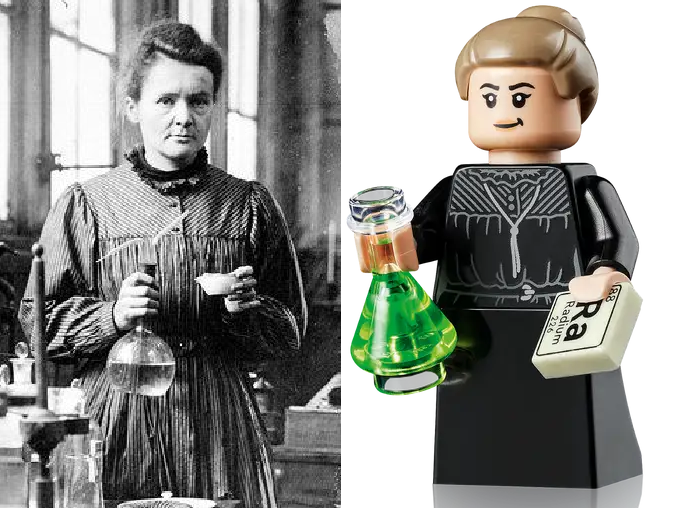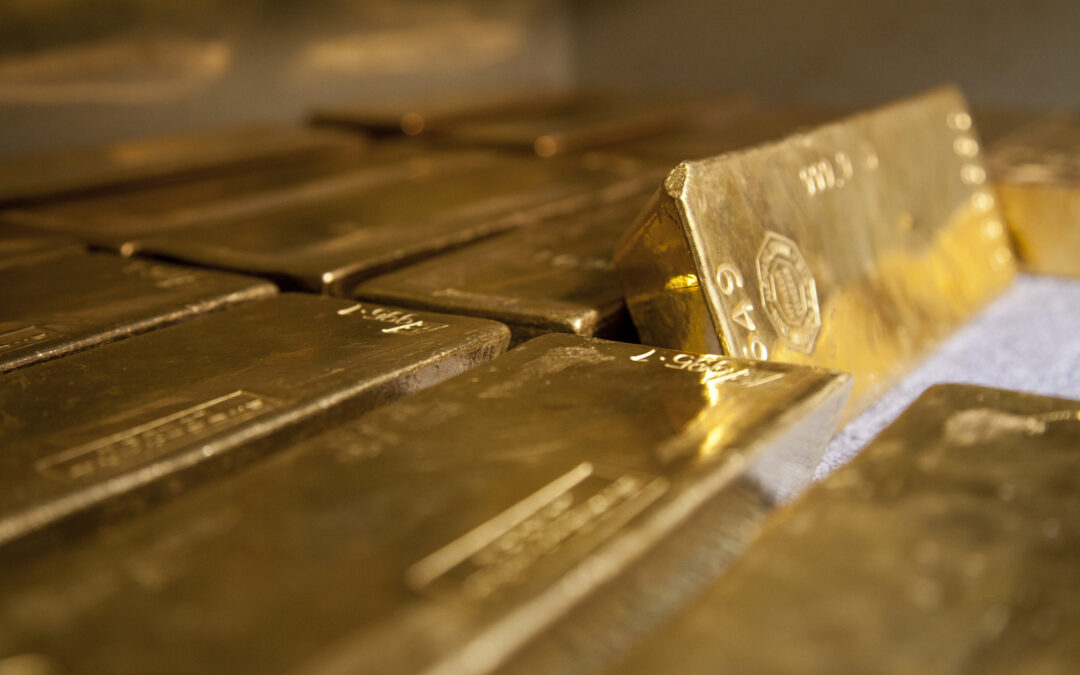Keep our news free from ads and paywalls by making a donation to support our work!

Notes from Poland is run by a small editorial team and is published by an independent, non-profit foundation that is funded through donations from our readers. We cannot do what we do without your support.
Lego has launched a new set honouring three famous scientists, including Polish double Nobel Prize winner Maria Skłodowska-Curie.
However, the toymaker has received some criticism for naming her only as Marie Curie. That is how she is often referred to outside Poland, but it uses only her French husband’s surname and removes the original Polish surname that Skłodowska-Curie herself retained throughout her life.
The set, called “The Evolution of STEM” (with STEM standing for science, technology, engineering and mathematics), was announced by Lego on Saturday and will be released on 1 March 2025.
As well as Skłodowska-Curie – a physicist and chemist who pioneered research on radioactivity – it features English polymath Isaac Newton, famous for his law of universal gravitation, and American agricultural scientist George Washington Carver, whose work helped improve farming practices.
The trio are accompanied by a model of an open book, from which burst famous scientific innovations (mostly not associated with Skłodowska-Curie, Newton or Carver) including a space shuttle, a DNA strand, a microscope and a carbon atom.
The figurine depicting Skłodowska-Curie shows her holding a luminous green beaker and a block on which is written “Ra”, representing radium, one of the radioactive elements discovered by the Polish scientist. The other such element, polonium, is named after her homeland.
Born Maria Skłodowska in Congress Poland – a state effectively under Russian control – in 1867, Skłodowska-Curie went on to become one of history’s greatest scientists. She remains the only person to have won Nobel Prizes in two different scientific fields.
Having moved to France in her twenties, she enrolled at the University of Paris in 1891 and it was in that city that she met her fellow scientist and future husband Pierre Curie. After they married she became a naturalised French citizen.
The pair jointly won the Nobel Prize in Physics in 1903 for their pioneering work on radioactivity (a word coined by Skłodowska-Curie herself). After Pierre’s death in a street accident in 1906, Skłodowska-Curie continued her research, going on to win the Nobel Prize in Chemistry in 1911 for her discovery of radium and polonium.
Lego has created a tribute to Polish poet Wisława Szymborska to mark the 100th anniversary of her birth.
The model, made up of 21,000 bricks and displayed in her home city of Kraków, depicts the moment she was awarded the Nobel Prize in Literature https://t.co/QRf7DX5sPO
— Notes from Poland 🇵🇱 (@notesfrompoland) July 2, 2023
The scientist used both her maiden name and her husband’s surname, as seen in her signature and on her 1911 Nobel Prize certificate, both of which say “Skłodowska Curie”.
However, outside Poland she is often referred to using only her husband’s name. In the English-language description of its new set, Lego has reflected this practice (although in the Polish-language version she is referred to using the double-barrelled version of her surname).
On Lego’s website, a number of users have commented criticising this decision and calling on the firm to use her full, double-barrelled surname. The firm’s decision also drew criticism from some commentators on social media, including journalist Patrycjusz Wyżga.
Hey @LEGO_Group! Shame on you! Maria SKŁODOWSKA-Curie, she was Polish! https://t.co/imTawMhnz7
— Patrycjusz Wyżga 🇵🇱 🇪🇺 🇺🇦 (@patrycjuszwyzga) February 2, 2025

Notes from Poland is run by a small editorial team and published by an independent, non-profit foundation that is funded through donations from our readers. We cannot do what we do without your support.
Main image credit: Lego (promotional materials)

Daniel Tilles is editor-in-chief of Notes from Poland. He has written on Polish affairs for a wide range of publications, including Foreign Policy, POLITICO Europe, EUobserver and Dziennik Gazeta Prawna.



















